When we think of the 10 commandments, we imagine two stone tablets inscribed with Divine laws. But what exactly was their shape? Were they rectangles, squares, or rectangles with rounded tops? This intriguing question sparks debate and curiosity among scholars, theologians, and historians alike. We’ll first look at the portrayal of the stone tablets in early Western art, followed by depictions of the 10 commandments in Jewish Art.
The 10 Commandments in Early Western Art
Stone Tablets with Rounded Tops

Popular depictions of the 10 commandments in early Western art show them as two small rectangular tablets with rounded tops, resembling a pair of obelisks. The main source for this depiction comes from early European Christian art.
This iconic shape still permeates popular culture, from movie scenes to religious iconography.

Stone Tablets with Flat Tops
Surprisingly, early artists like Andrea Mantegna and Michelangelo rendered the 10 commandments on stone tablets with flat tops. Why these artists broke artistic tradition is unknown. Perhaps they communicated with Jewish scholars of their time.
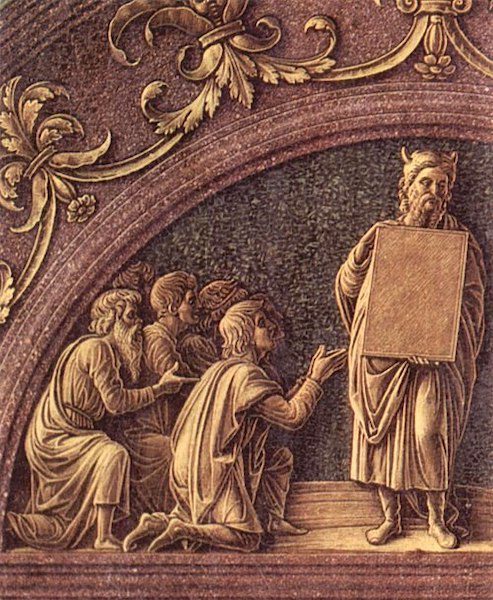

The Shape of the Tablets According to the Talmud
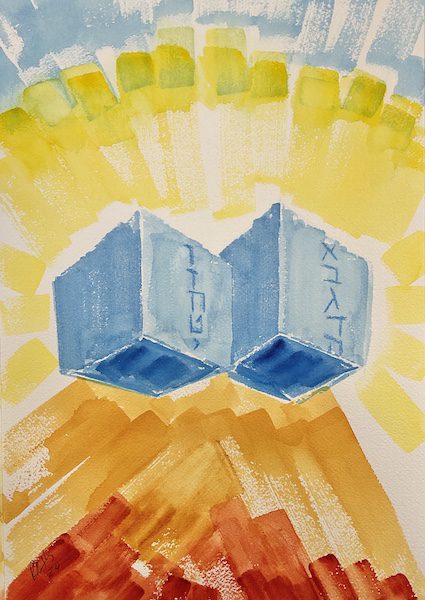
There is no authentic source in Jewish tradition depicting the 10 commandments with rounded tops. The shape of the tablets according to the Babylonian Talmud:
‘…And as for the tablets, their length was six handbreadths, their width was six handbreadths, and their thickness was three handbreadths.’ (Bava Batra 14a)
That’s approximately an 18×18 inch square, 9 inches thick.
Another opinion comes from the Jerusalem Talmud which measures the stone faces as six handbreadths tall by three handbreadths wide, or an 18×9 inch rectangle.
The Shape of the Tablets in Jewish Art
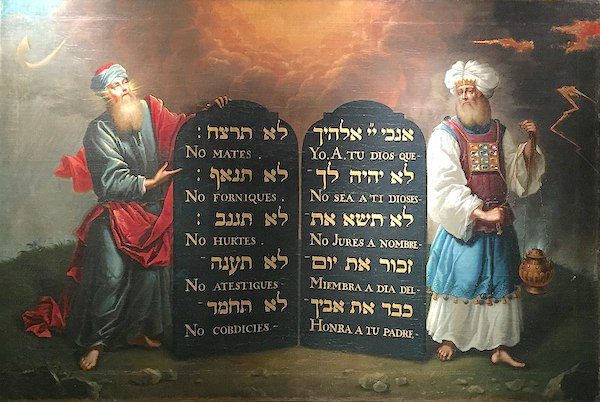
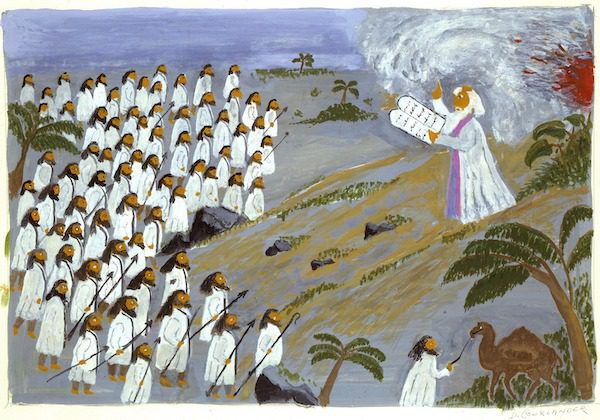
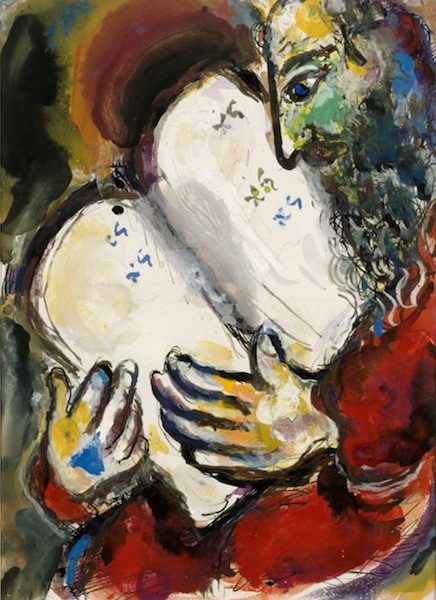
Many Jewish artists followed the ’rounded top’ style of their non-Jewish artistic predecessors. After Jews returned to England, Aron De Chaves (d.1705) created his famous painting Moses and Aaron and the Ten Commandments. The work was exceedingly popular, being displayed in the Creechurch Lane synagogue in London.
Jewish artists David Courlander and Marc Chagall also adapted the rounded top style in their artwork of the 10 commandments.
Conclusion
The concept of stone tablets with flat tops just hasn’t caught on in the art world. Today, most depictions of the 10 commandments in Jewish art have rounded tops. Perhaps it’s because this iconic shape is easily recognizable as a symbol for the 10 commandments. Habits are hard to change. But Mantegna and Michelangelo were right.
The Art of Making a Torah Scroll: timeless Judaica art

Discover more from Rhonda Roth Art
Subscribe to get the latest posts sent to your email.